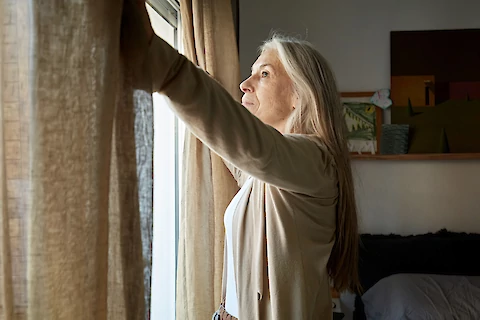
The transition to Daylight Savings Time can be difficult for anyone who keeps a regular sleep schedule. If you're used to waking at the same time every morning to sunlight, waking up before the sun can be disorienting. If you're a senior who prefers to start your day early, here are some Daylight Savings Time tips to help with the transition.
What is Daylight Savings Time?
Daylight Savings Time (DST) is a system that adjusts the official clock time to make better use of natural daylight hours. It is the practice of advancing clocks during summer months so that evening daylight is extended while sacrificing normal sunrise times. Clocks are advanced by one hour in the spring and then set back by one hour in the fall.
History of Daylight Savings Time
Daylight Savings Time was first introduced in the United States in 1918 as a way to save energy. It is observed in over 70 countries, including the United States and most of Canada.
How Does Daylight Savings Time Affect Seniors?
Disruption in Circadian Rhythm
Daylight Savings Time can be hard on seniors because it disrupts their Circadian Rhythm. Our Circadian Rhythm is an internal clock that regulates sleep-wake cycles and hormone production. This can result in fatigue, confusion, and difficulty sleeping.
Health Concerns
Disruptions to sleep cycles have negative impacts on health. This is particularly true for senior citizens who may be more susceptible to illness. Sleep deprivation is linked to obesity, dementia, and heart disease, among other illnesses. As we age, daily medications can become a necessary factor in maintaining our health. When the clocks change, it can throw off medication schedules and risk complications to existing health conditions.
Tips for Adjusting to the Time Change
Establish a New Routine
Adjusting your routine is just one of the many Daylight Savings Time tips that can make the transition smoother. This includes going to bed and waking up at the same time each day, eating at regular intervals, and getting some physical activity in. Adjust your routines by advancing them one hour to keep up with the time change.
Take Advantage of Natural Light
Since Daylight Savings Time means less sunlight first thing in the morning, it's important to make the most of it later in the day. When the sun is out, spend time outside and get some fresh air. Natural light will help your body adjust to the time change.
Exercise During the Day
Exercising during the daytime while the sun is out will help you maintain your Circadian Rhythm and get some much-needed physical activity in. Exercise can improve mood, sleep, and overall health. As always, check in with your doctor before beginning any new exercise routine.
Invest in Light Therapy
Light therapy is a great way to help you adjust to the time change. It involves using a light box to simulate sunlight and help regulate your body's natural sleep cycle. If you're used to the sun being out when you wake up, try starting your day with the light box to mimic natural light. It's a great way to fight fatigue and stay alert during the day.
Senior Helpers Beaverton Can Help
Senior Helpers Beaverton can help seniors create a new routine for a smooth transition during Daylight Savings Time. Senior Helpers Beaverton offers senior loved ones in Beaverton, King City, Hillsboro, Wilsonville, Tualatin, and Canby in-home, personal, and companionship care, among other services. If you or a loved one needs Daylight Savings Time tips or additional support, contact Senior Helpers Beaverton today to learn more.